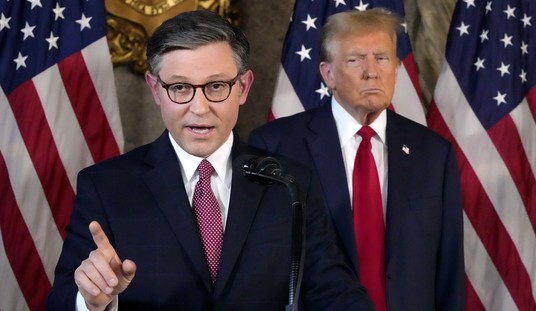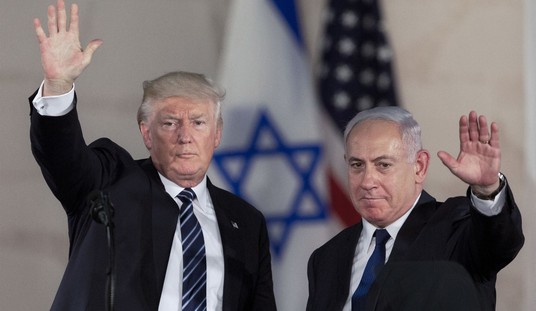The essay below appeared six years ago in Asia Times Online.
During 1992-1993, I advised the Russian Finance Ministry on currency stabilization and sovereign debt issuance–a fruitless exercise, given that the Yeltsin government presided over a general free-for-all. At the time I was chief economist at Jude Wanniski’s firm Polyconomics. Our most prominent client was private equity investor Theodore Forstmann, a friend of America’s ambassador to the Russian Federation, Robert Strauss. Ambassador Strauss secured my appointment as an external advisor to Finance Minister Yegor Gaidar, including one with then Bear Stearns chief economist Larry Kudlow. Our efforts came to nought, to be sure, but I got something of an education.
Americans play Monopoly, Russians chess
By Spengler
August 19, 2008
On the night of November 22, 2004, then-Russian president – now premier – Vladimir Putin watched the television news in his dacha near Moscow. People who were with Putin that night report his anger and disbelief at the unfolding “Orange” revolution in Ukraine. “They lied to me,” Putin said bitterly of the United States. “I’ll never trust them again.” The Russians still can’t fathom why the West threw over a potential strategic alliance for Ukraine. They underestimate the stupidity of the West.
American hardliners are the first to say that they feel stupid next to Putin. Victor Davis Hanson wrote on August 12 [1] of Moscow’s “sheer diabolic brilliance” in Georgia, while Colonel Ralph Peters, a columnist and television commentator, marveled on August 14 [2], “The Russians are alcohol-sodden barbarians, but now and then they vomit up a genius … the empire of the czars hasn’t produced such a frightening genius since [Joseph] Stalin.” The superlatives recall an old observation about why the plots of American comic books need clever super-villains and stupid super-heroes to even the playing field. Evidently the same thing applies to superpowers.
The fact is that all Russian politicians are clever. The stupid ones are all dead. By contrast, America in its complacency promotes dullards. A deadly miscommunication arises from this asymmetry. The Russians cannot believe that the Americans are as stupid as they look, and conclude that Washington wants to destroy them. That is what the informed Russian public believes, judging from last week’s postings on web forums, including this writer’s own.
These perceptions are dangerous because they do not stem from propaganda, but from a difference in existential vantage point. Russia is fighting for its survival, against a catastrophic decline in population and the likelihood of a Muslim majority by mid-century. The Russian Federation’s scarcest resource is people. It cannot ignore the 22 million Russians stranded outside its borders after the 1991 collapse of the Soviet Union, nor, for that matter, small but loyal ethnicities such as the Ossetians. Strategic encirclement, in Russian eyes, prefigures the ethnic disintegration of Russia, which was a political and cultural entity, not an ethnic state, from its first origins.
The Russians know (as every newspaper reader does) that Georgia’s President Mikheil Saakashvili is not a model democrat, but a nasty piece of work who deployed riot police against protesters and shut down opposition media when it suited him – in short, a politician in Putin’s mold. America’s interest in Georgia, the Russians believe, has nothing more to do with promoting democracy than its support for the gangsters to whom it handed the Serbian province of Kosovo in February.
Again, the Russians misjudge American stupidity. Former president Ronald Reagan used to say that if there was a pile of manure, it must mean there was a pony around somewhere. His epigones have trouble distinguishing the pony from the manure pile. The ideological reflex for promoting democracy dominates the George W Bush administration to the point that some of its senior people hold their noses and pretend that Kosovo, Ukraine and Georgia are the genuine article.
Think of it this way: Russia is playing chess, while the Americans are playing Monopoly. What Americans understand by “war games” is exactly what occurs on the board of the Parker Brothers’ pastime. The board game Monopoly is won by placing as many hotels as possible on squares of the playing board. Substitute military bases, and you have the sum of American strategic thinking.
America’s idea of winning a strategic game is to accumulate the most chips on the board: bases in Uzbekistan and Kyrgyzstan, a pipeline in Georgia, a “moderate Muslim” government with a big North Atlantic Treaty Organization base in Kosovo, missile installations in Poland and the Czech Republic, and so forth. But this is not a strategy; it is only a game score.
Chess players think in terms of interaction of pieces: everything on the periphery combines to control the center of the board and prepare an eventual attack against the opponent’s king. The Russians simply cannot absorb the fact that America has no strategic intentions: it simply adds up the value of the individual pieces on the board. It is as stupid as that. But there is another difference: the Americans are playing chess for career and perceived advantage. Russia is playing for its life, like Ingmar Bergman’s crusader in The Seventh Seal.
Dull people know that clever people are cleverer than they are, but they do not know why. The nekulturny Colonel Ralph Peters, a former US military intelligence analyst, is impressed by the tactical success of Russian arms in Georgia, but cannot fathom the end-game to which these tactics contribute. He writes, “The new reality is that a nuclear, cash-rich and energy-blessed Russia doesn’t really worry too much whether its long-term future is bleak, given problems with Muslim minorities, poor life-expectancy rates, and a declining population. Instead, in the here and now, it has a window of opportunity to reclaim prestige and weaken its adversaries.”
Precisely the opposite is true: like a good chess player, Putin has the end-game in mind as he fights for control of the board in the early stages of the game. Demographics stand at the center of Putin’s calculation, and Russians are the principal interest that the Russian Federation has in its so-called near abroad. The desire of a few hundred thousand Abkhazians and South Ossetians to remain in the Russian Federation rather than Georgia may seem trivial, but Moscow is setting a precedent that will apply to tens of millions of prospective citizens of the Federation – most controversially in Ukraine.
Before turning to the demographics of the near abroad, a few observations about Russia’s demographic predicament are pertinent. The United Nations publishes population projections for Russia up to 2050, and I have extended these to 2100. If the UN demographers are correct, Russia’s adult population will fall from about 90 million today to only 20 million by the end of the century. Russia is the only country where abortions are more numerous than live births, a devastating gauge of national despair.
Russia is the only country where abortions are more numerous than live births, a devastating gauge of national despair.
Under Putin, the Russian government introduced an ambitious natalist program to encourage Russian women to have children. As he warned in his 2006 state of the union address, “You know that our country’s population is declining by an average of almost 700,000 people a year. We have raised this issue on many occasions but have for the most part done very little to address it … First, we need to lower the death rate. Second, we need an effective migration policy. And third, we need to increase the birth rate.”
Russia’s birth rate has risen slightly during the past several years, perhaps in response to Putin’s natalism, but demographers observe that the number of Russian women of childbearing age is about to fall off a cliff. No matter how much the birth rate improves, the sharp fall in the number of prospective mothers will depress the number of births. UN forecasts show the number of Russians aged 20-29 falling from 25 million today to only 10 million by 2040.
Russians aged 20-29 falling from 25 million today to only 10 million by 2040.
Russia, in other words, has passed the point of no return in terms of fertility. Although roughly four-fifths of the population of the Russian Federation is considered ethnic Russians, fertility is much higher among the Muslim minorities in Central Asia. Some demographers predict a Muslim majority in Russia by 2040, and by mid-century at the latest.
Part of Russia’s response is to encourage migration of Russians left outside the borders of the federation after the collapse of communism in 1991. An estimated 6.5 million Russians from the former Soviet Union now work in Russia as undocumented aliens, and a new law will regularize their status. Only 20,000 Russian “compatriots” living abroad, however, have applied for immigration to the federation under a new law designed to draw Russians back.
That leaves the 9.5 million citizens of Belarus, a relic of the Soviet era that persists in a semi-formal union with the Russian Federation, as well as the Russians of the Eastern Ukraine and Kazakhstan. More than 15 million ethnic Russians reside in those three countries, and they represent a critical strategic resource. Paul Goble in his Window on Eurasia website reported on August 16:
Moscow retreated after encountering fierce opposition from other countries, but semi-legal practices of obtaining Russian citizenship that began in former Soviet republics in the early 1990s continue unabated. There is plenty of evidence that there are one to two million people living in the territory of the former Soviet Union who have de facto dual citizenship and are reluctant to report it to the authorities. Russia did little to stop the process. Moreover, starting in 1997, it encouraged de facto dual citizenship.
Russia has an existential interest in absorbing Belarus and the Eastern Ukraine. No one cares about Byelorus. It has never had an independent national existence or a national culture; the first grammar in the Belorussian language was not printed until 1918, and little over a third of the population of Belarus speaks the language at home. Never has a territory with 10 million people had a sillier case for independence. Given that summary, it seems natural to ask why anyone should care about Ukraine. That question is controversial; for the moment, I will offer the assertion that partition is the destiny of Ukraine.
Even with migration and annexation of former Russian territory that was lost in the fracture of the USSR, however, Russia will not win its end-game against demographic decline and the relative growth of Muslim populations. The key to Russian survival is Russification, that is, the imposition of Russian culture and Russian law on ethnicities at the periphery of the federation. That might sound harsh, but that has been Russian nature from its origins.
Russia is not an ethnicity but an empire, the outcome of hundreds of years of Russification. That Russification has been brutal is an understatement, but it is what created Russia out of the ethnic morass around the Volga river basin. One of the best accounts of Russia’s character comes from Eugene Rosenstock-Huessey (Franz Rosenzweig’s cousin and sometime collaborator) in his 1938 bookOut of Revolution. Russia’s territory tripled between the 16th and 18th centuries, he observes, and the agency of its expansion was a unique Russian type. The Russian peasant, Rosenstock-Huessey observed, “was no stable freeholder of the Western type but much more a nomad, a pedlar, a craftsman and a soldier. His capacity for expansion was tremendous.”
In 1581 Asiatic Russia was opened. Russian expansion, extending even in the eighteenth century as far as the Russian River in Northern California, was by no means Czaristic only. The “Moujik”, the Russian peasant, because he is not a “Bauer” or a “farmer”, or a “laborer”, but a “Moujik”, wanders and stays, ready to migrate again eventually year after year.
Russia was never a multi-ethnic state, but rather what I call a supra-ethnic state, that is, a state whose national principle transcends ethnicity. A reader has called my attention to an account of the most Russian of all writers, Fyodor Dostoyevsky, of his own Russo-Lithuanian-Ukrainian background:
I suppose that one of my Lithuanian ancestors, having emigrated to the Ukraine, changed his religion in order to marry an Orthodox Ukrainian, and became a priest. When his wife died he probably entered a monastery, and later, rose to be an archbishop. This would explain how the Archbishop Stepan may have founded our Orthodox family, in spite of his being a monk. It is somewhat surprising to see the Dostoyevsky, who had been warriors in Lithuania, become priests in Ukraine. But this is quite in accordance with Lithuanian custom. I may quote the learned Lithuanian W St Vidunas in this connection: “Formerly many well-to-do Lithuanians had but one desire: to see one or more of their sons enter upon an ecclesiastical career.”
Dostoyevsky’s mixed background was typically Russian, as was the Georgian origin of Joseph Stalin.
Russia intervened in Georgia to uphold the principle that anyone who holds a Russian passport – Ossetian, Akhbaz, Belorussian or Ukrainian – is a Russian. Russia’s survival depends not so much on its birth rate, nor on immigration, nor even on prospective annexation, but on the survival of the principle by which Russia was built in the first place. That is why Putin could not abandon the pockets of Russian passport holders in the Caucusus. That Russia history has been tragic, and its nation-building principle brutal and sometimes inhuman, is a different matter. Russia is sufficiently important that its tragedy will be our tragedy, unless averted.
The place to avert tragedy is in Ukraine. Russia will not permit Ukraine to drift to the West. Whether a country that never had an independent national existence prior to the collapse of communism should become the poster-child for national self-determination is a different question. The West has two choices: draw a line in the sand around Ukraine, or trade it to the Russians for something more important.
My proposal is simple: Russia’s help in containing nuclear proliferation and terrorism in the Middle East is of infinitely greater import to the West than the dubious self-determination of Ukraine. The West should do its best to pretend that the “Orange” revolution of 2004 and 2005 never happened, and secure Russia’s assistance in the Iranian nuclear issue as well as energy security in return for an understanding of Russia’s existential requirements in the near abroad. Anyone who thinks this sounds cynical should spend a week in Kiev.
Russia has more to fear from a nuclear-armed Iran than the United States, for an aggressive Muslim state on its borders could ruin its attempt to Russify Central Asia. Russia’s strategic interests do not conflict with those of the United States, China or India in this matter. There is a certain degree of rivalry over energy resources, but commercial rivalry does not have to turn into strategic enmity.
If Washington chooses to demonize Russia, the likelihood is that Russia will become a spoiler with respect to American strategic interests in general, and use the Iranian problem to twist America’s tail. That is a serious risk indeed, for nuclear proliferation is the one means by which outlaw regimes can pose a serious threat to great powers. Russia confronts questions not of expediency, but of existence, and it will do whatever it can to gain maneuvering room should the West seek to “punish” it for its actions in Georgia.
One irony of the present crisis is that Washington’s neo-conservatives, by demanding a tough stance against Russia, may have harmed Israel’s security interests more profoundly than any of Israel’s detractors in American politics. The neo-conservatives are not as a rule Jewish, but many of them are Jews who have a deep concern for Israel’s security – as does this writer. If America turns Russia into a strategic adversary, the probability of Israel’s survival will drop by a big notch.
Notes
1. See National Review OnlineMoscow’s Sinister Brilliance.
2. See New York Post, A czar is born: Bad Vlad wins war, dupes West & proves he’s genius









Join the conversation as a VIP Member